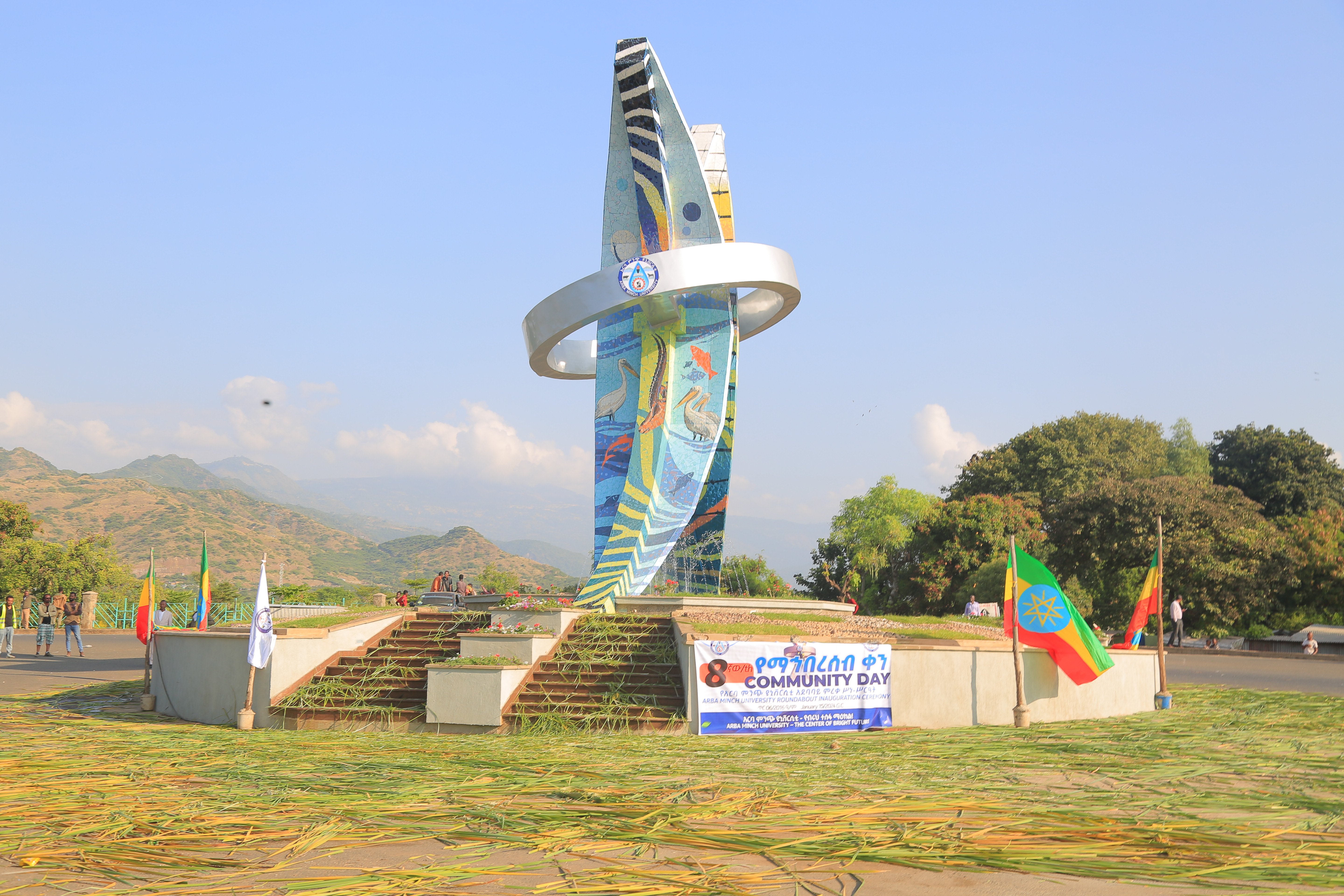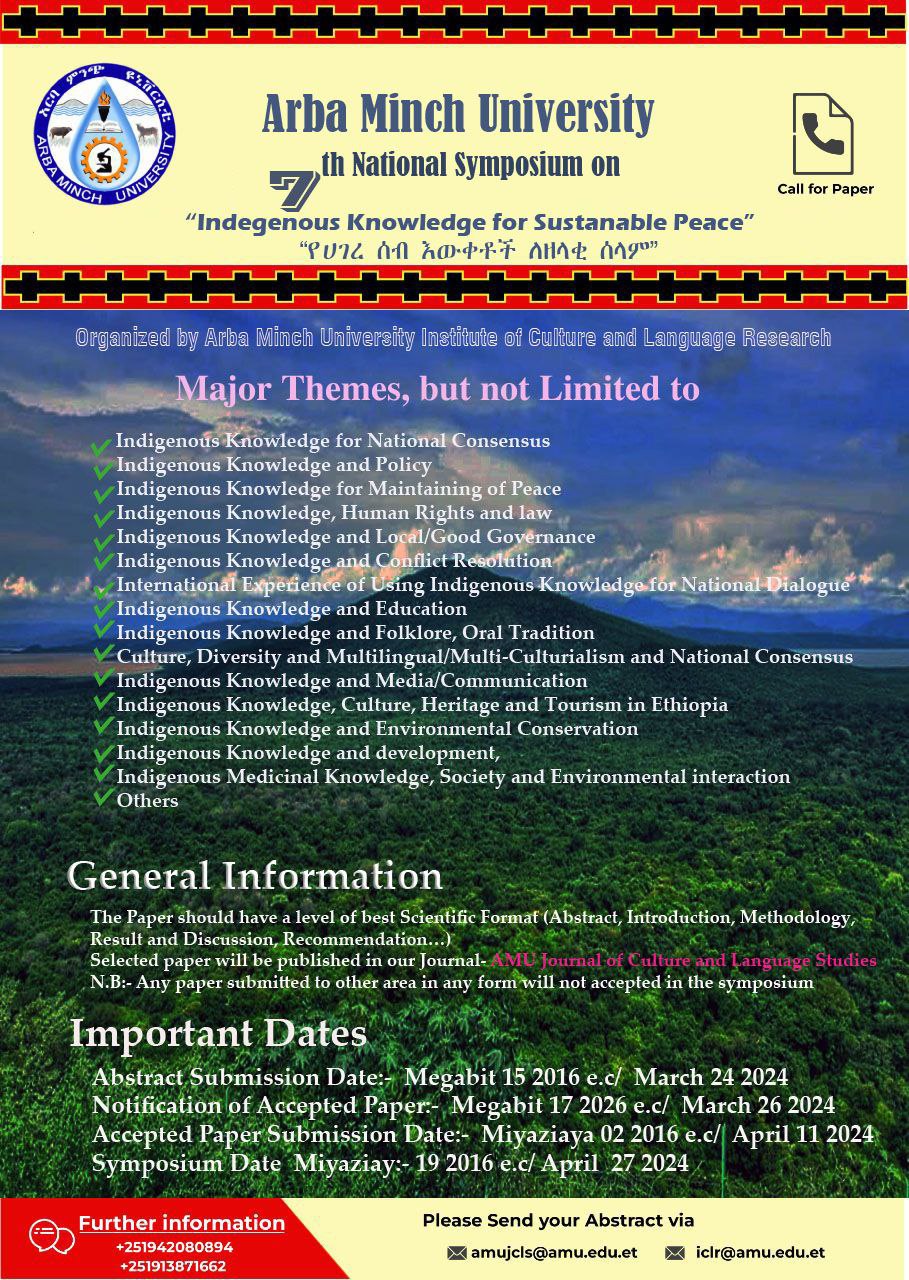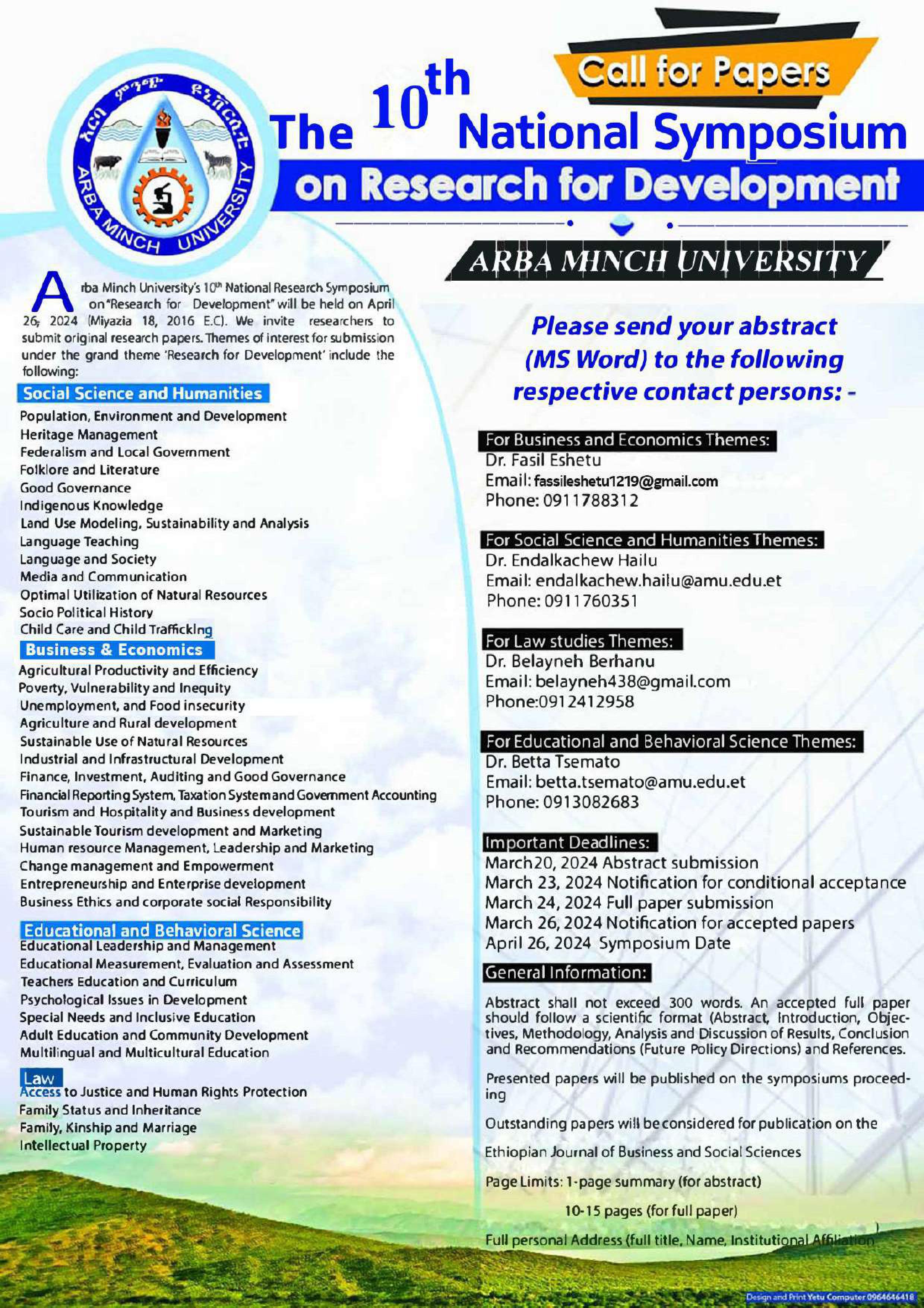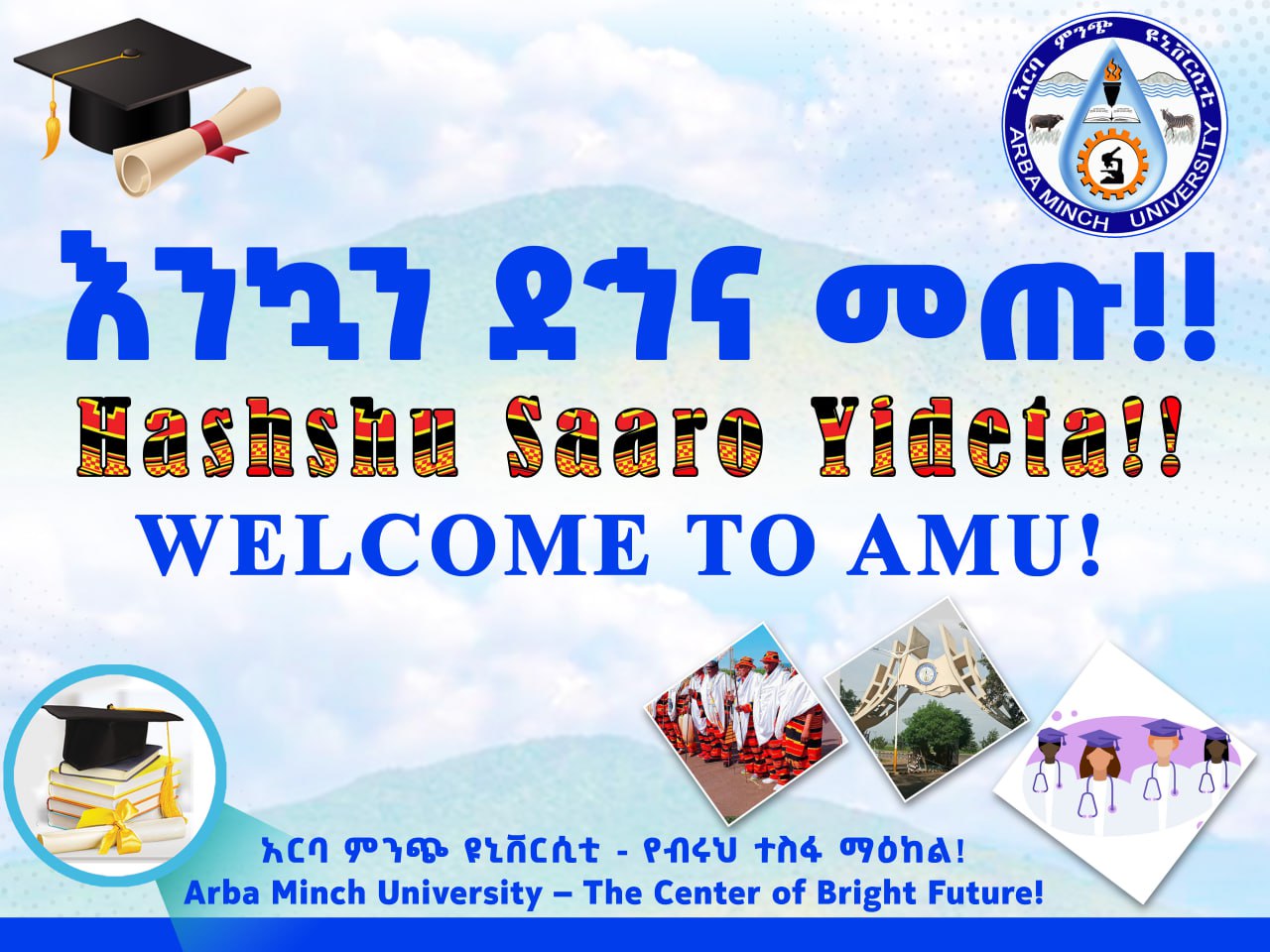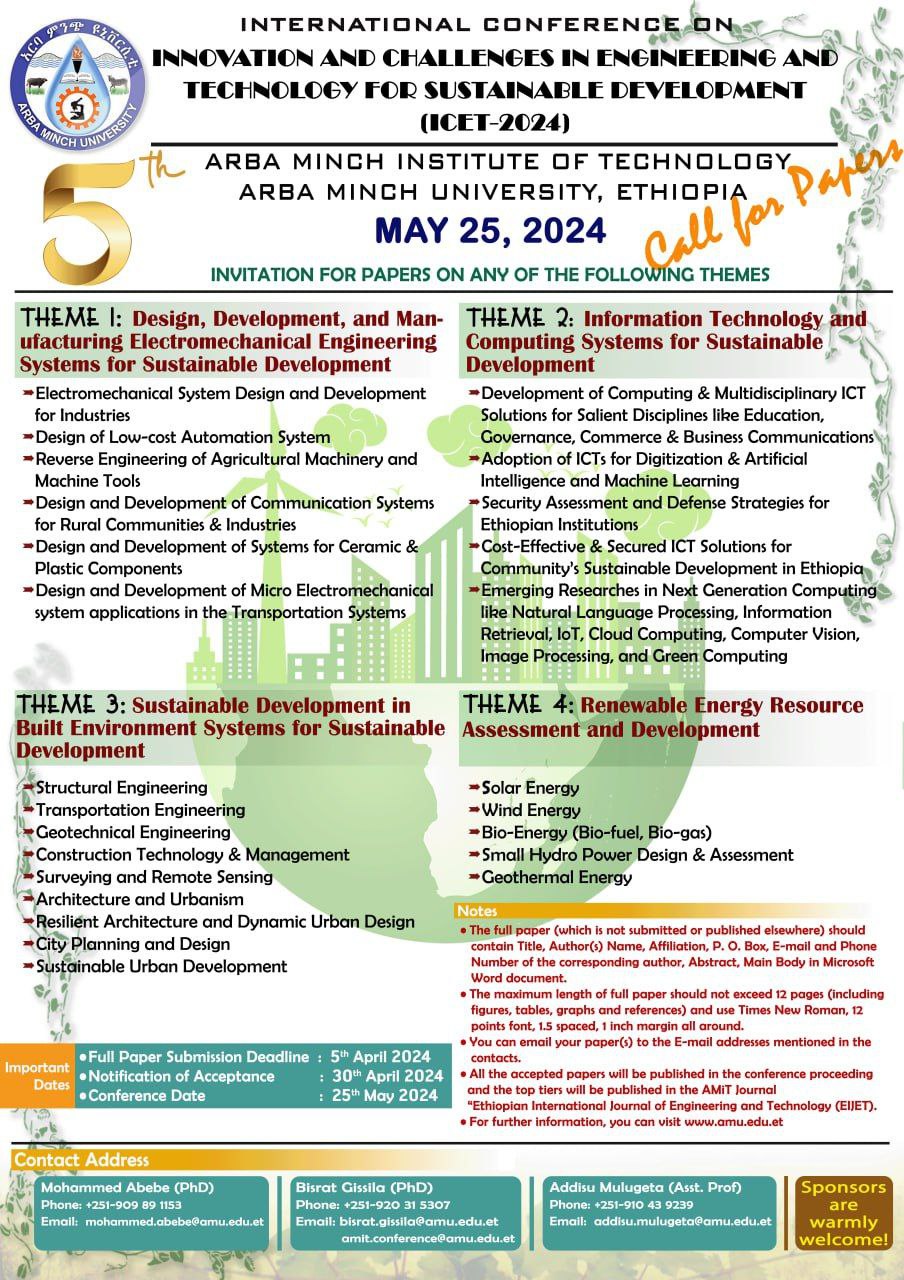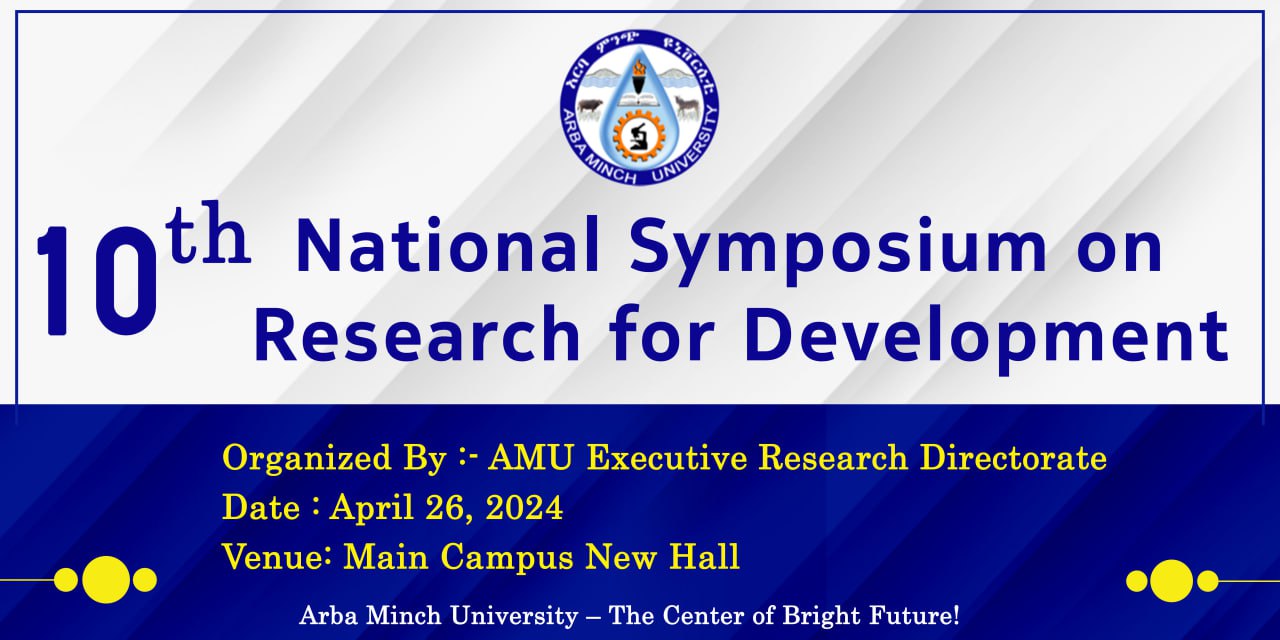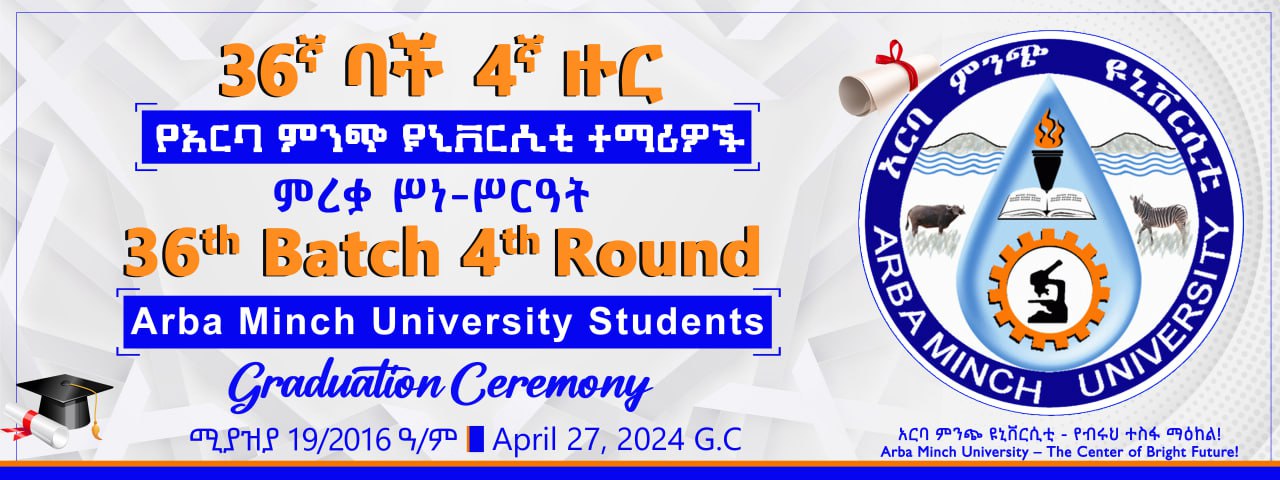Arba Minch University’s Research Directorate has hosted 7th national meet on ‘Science for Sustainable Development’ at Main Campus beginning from 16th to 17th April, 2021. Researchers, academicians and professionals from across Ethiopia gathered to deliberate upon key issue of science and innovation that unleash holistic development in sustainably catering to the needs of people and alleviate their problems. Click here to see the pictures
The program began with Research Directorate’s Executive Director, Dr Teshome Yirgu, giving lowdown about the program. The symposium has 9 poster and 36 paper presentations that was carried out in parallel sessions. The takeaway point was that there is a need for development that sustains and boosts productivity; more importantly, current generation must go for development and urbanization but not at the cost of environment and interest of future generation.
Dr Teklu Wegayehu, delegate for research and community service vice president, underlining the issue of food insecurity, said, this issue is threatening the overall health of human population. Covid-19 pandemic has further complicated it and overutilization of resources has exacerbated climate change all across. He added that we have gathered here to know as how science can be utilized to alleviate these distressing problems and formulate a way-out that will spur sustainable development.
Dr Melkamu Mada, opening symposium on behalf of AMU President, said, Ethiopia is giving special attention to broaden the application of scientific fields of study focusing on problem-solving research and transfer of technologies to ensure development becomes sustainable and to complement national efforts, AMU has entrenched a culture where conducting grand research projects and transferring technologies make our contribution more increasingly meaningful and precisely credible.
In his keynote address, Prof Tefera Belachew said, at this moment, role of science is very critical, if we want development to be sustainable, we need to use scientific innovation and technology. And as we move on, we will encounter problems particularly following burgeoning population therefore resources should be maximize and use of food has to be optimized. To ensure food security, move to source of animal food just can’t be sustainable globally, it must be replaced with plant-based food.
Similarly, Ethiopia has immense water bodies of which only 10% is exploited and 69% population has no access to potable water; furthermore, we have to step up efforts in energy sector. He informed that multi-sectoral policy will address these issues in a well-thought manner which will have focus on research and development.
Prof Sileshi Nemomissa of Addis Ababa University, stressing on sustainable development goals, said, we need to have enough food for all and to ensure this, we must have system ecology and economics, it will help in finding new ways to stimulate sustainable development. It will open up vistas of opportunities for new research, where role of socio-ecological model for development industrial ecology – production of goods and services from a point of view of nature where a natural system is mimicked for conserving and reusing resources at al.
At the outset, 3 presenters, Dr Yishak Kechero, Mr Wondimo Barana and Mr Eshetu Andarge presented finds on ‘Nutritional status of cow in South Ethiopia’, ‘Structural, electrical, dielectric and electrochemical properties studies’ and ‘Theory of planned behavior against Covid-19 pandemic’.
The parallel sessions were continued at College of Agricultural Sciences, Natural and Computational Sciences and College of Medicine and health sciences wherein respective papers were discussed. Many researchers, academicians, professionals and other stakeholders were in attendance.
(Communication Affairs Directorate)
